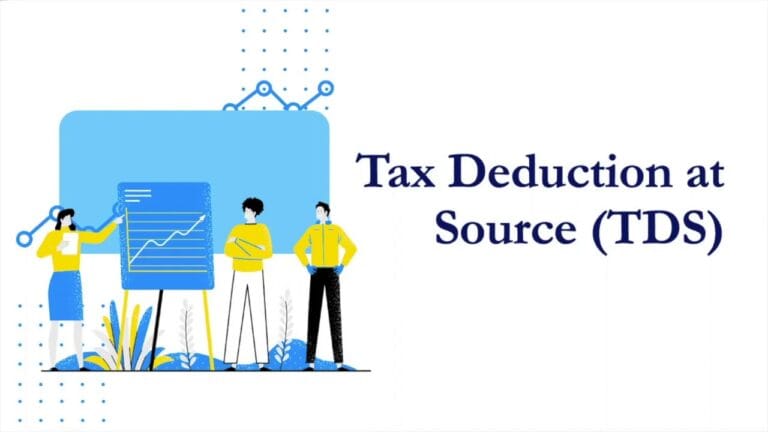GST Annual Return filing is a comprehensive process that consolidates the details of a taxpayer’s activities for the entire financial year under the Goods and Services Tax (GST) regime. Here’s a detailed guide on GST Annual Return filing:
Types of GST Annual Returns
- GSTR-9: Annual Return for regular taxpayers (including composition taxpayers).
- GSTR-9A: Annual Return for taxpayers registered under the Composition Scheme.
- GSTR-9C: Reconciliation Statement and Certification to be filed by taxpayers with an aggregate turnover above Rs. 5 crores. It includes reconciliation of turnover, tax paid, and financial statements.
Components of GST Annual Return
- Basic Information: Includes GSTIN, legal name, trade name (if any), and financial year for which the return is filed.
- Outward and Inward Supplies: Details of outward supplies (both taxable and exempted) and inward supplies on which reverse charge applies.
- Input Tax Credit (ITC): Breakup of ITC claimed during the financial year, including ITC on purchases, imports, and reversal of ITC.
- Tax Liability: Details of total tax liability on outward supplies, taxes paid, and refunds claimed (if any).
- Late Fees and Interest: Declaration of late fees, if applicable, and interest paid during the year.
- Other Information: Includes details of HSN (Harmonized System of Nomenclature) codes for goods and SAC (Service Accounting Code) for services.
Documents Required for GST Annual Return Filing
- Financial Statements: Audited financial statements for the financial year.
- GST Returns: Copies of all GSTR-1, GSTR-3B, and any other applicable returns filed during the year.
- Reconciliation Statement (GSTR-9C): Applicable only for taxpayers with turnover above Rs. 5 crores.
- Audit Report: The taxpayer must submit a certified reconciliation statement and audit report in case of GSTR-9C.
Steps to File GST Annual Return
- Preparation: Gather all necessary documents and information required for filing the annual return.
- Access GST Portal: Log in to the GST portal (https://www.gst.gov.in/) using valid credentials (GSTIN and password).
- Navigate to Annual Return Section: Go to the ‘Services’ menu, select ‘Returns’, and then click on ‘Annual Return’.
- Select the Form: Choose the applicable form (GSTR-9, GSTR-9A, or GSTR-9C) based on your taxpayer category and turnover.
- Complete the Return: Fill in the details accurately in the online form. Ensure all fields are correctly filled, and reconcile data with financial statements.
- Verification: Verify the details entered in the form and validate them against supporting documents.
- Submission: After verification, submit the form using a digital signature certificate (DSC) or electronic verification code (EVC).
- Acknowledgment: Upon successful submission, an acknowledgment number (ARN) is generated. Keep this ARN for future reference and tracking.
Important Considerations
- Timely Filing: The taxpayer must file the annual return within the due date to avoid penalties and late fees.
- Accuracy: Double-check all entries to ensure accuracy and completeness of information provided in the annual return.
- Reconciliation: Reconcile data with audited financial statements and GST returns filed during the year to avoid discrepancies.
- Professional Assistance: Seek assistance from GST consultants or professionals for complex issues, especially for GSTR-9C filing.
Penalties for Non-compliance
The GST department may impose penalties and late fees for late filing of GST Annual Return, varying based on the period of delay and the taxpayer’s turnover.
GST Annual Return filing is crucial for businesses to summarize their GST activities for the financial year and ensure compliance with GST laws. By understanding the requirements and following a systematic approach, businesses can streamline the filing process and avoid penalties. Professional assistance can provide guidance in navigating complexities and ensuring accurate compliance with GST regulations.
At Ujjwal Gupta & Co
We, at Ujjwal Gupta & Co, are dedicated to delivering personalized, high-quality solutions tailored to meet your financial and business needs. With our team of professionals and a client-first approach, we ensure that every challenge is met with expert guidance and strategic insight.
We are dedicated to ensuring your business’s success by providing best service practice available in the industry and that too at a cost effective pricing. Our team of experts is excited to work with you and provide the support you need to thrive in the Indian business landscape.
Our only motive is to create Value for Our Clients and accordingly, have a Client Value System at our Office.
So, let us help you navigate the complexities of finance and compliance, empowering you to focus on what matters most — growing your business. Get in touch today, and take the first step towards financial peace of mind.
The GST Annual Return is a comprehensive return that summarizes a taxpayer’s GST transactions for a financial year. It includes details of outward and inward supplies, taxes paid, Input Tax Credit (ITC) claimed, and other relevant data. It must be filed by all taxpayers registered under GST, with some exceptions like composition scheme taxpayers.
Every taxpayer registered under GST, except composition taxpayers, casual taxable persons, Input Service Distributors (ISD), and non-resident taxpayers, must file the GST Annual Return. The key forms include GSTR-9 for regular taxpayers and GSTR-9A for composition taxpayers.
The main types of GST Annual Returns are:
- GSTR-9: Filed by regular taxpayers summarizing the yearly GST data.
- GSTR-9A: Filed by taxpayers under the composition scheme.
- GSTR-9C: Filed by taxpayers with turnover exceeding ₹5 crore, along with a reconciliation statement and audit report certified by a Chartered Accountant or Cost Accountant.
The taxpayer must file the GST Annual Return for any financial year by December 31 of the following financial year. For instance, they must file the GST Annual Return for FY 2024-25 by December 31, 2025.
Yes, a taxpayer registered under regular GST must file a nil GSTR-9 even if there are no transactions during the year. Authorities may impose penalties for non-filing.
GSTR-9C is a reconciliation statement that must be filed by taxpayers with an annual turnover exceeding ₹5 crore. It compares the data in GSTR-9 with the audited financial statements, and it must be certified by a Chartered Accountant or Cost Accountant. Essentially, it is an audit report that ensures the accuracy of the annual return.
No, the GST Annual Return cannot be revised once filed. Therefore, it is important to review all details carefully before submitting the return to avoid errors. Any discrepancies can only be corrected in the subsequent year’s return.
If a taxpayer fails to file the GST Annual Return by the due date:
- A late fee of ₹200 per day (₹100 under CGST and ₹100 under SGST) is levied, up to a maximum of 0.25% of the taxpayer’s turnover in the state/union territory.
- Interest may also be charged if there are unpaid tax liabilities.
To file the GST Annual Return, you need to provide:
- Summary of outward supplies (sales) and inward supplies (purchases) made during the year.
- Details of tax paid (CGST, SGST/UTGST, IGST).
- Information on Input Tax Credit (ITC) claimed, reversed, or adjusted during the year.
- Details of any refunds claimed or demands raised.
- Late fees paid for delayed filing, if any.
Yes, the GST Annual Return can be filed online through the GST portal (https://www.gst.gov.in) by logging into the taxpayer’s account. Taxpayers can also file the forms using GST software or by engaging a GST consultant. Additionally, businesses using accounting software can often export the necessary data and upload it directly to the portal.
Why Choose UGC?

Client Centric Approach
Client is the key driver of our service offerings. Our approach to service offerings is based on a client centric and customized approach. Our specialized teams are a mix of technical and industry experience in order to serve clientele for their specific needs.

Team Work
We have built high performing teams supported by strong work ethic. Our team is a mix of experts, professionals and support staff from technical and varied academic, social and ethnic backgrounds. We believe diversification plays a vital role in motivating the team.

Quick Turnaround
We always endeavour for a quick turnaround time to serve our clientele. We are supported by an experienced and client focussed support teams to offer timely services to our clientele. In case of any business exigencies and time sensitive service requirements, you can always count on us.

Open Communications
We believe that open communication is the core principle in order to demonstrate trust, build long lasting and valuable relationships with clientele. We are committed to ensuring transparency in communication, service offerings and delivery. Our only motive is to provide professional services to our clients.

Client Value System
We value for the Client time and thus, we offer services that are value for money. Quality professional services are provided to our clients, so that they are able to achieve their desired results. We are a quality trademark in the industry and thus, our clients count on us always.

Quality in Delivering Work
Our service offerings are driven by quality and reviews at every level. We strive to provide a qualitative and value-added delivery to our clientele. At all times, we endeavour to provide exceptional client service by meeting client expectations and driving client satisfaction.




















